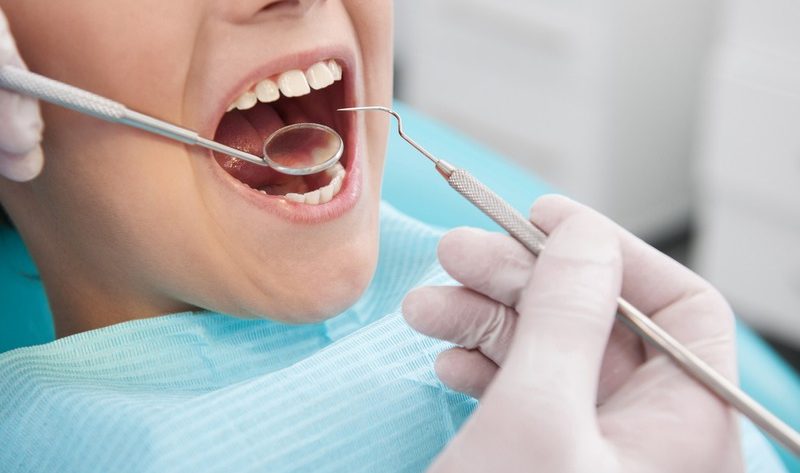Tooth decay is a common concern for many and can develop quietly without much initial warning. Recognizing the early signs is crucial for preventing more serious dental problems. This article provides insights on how to detect tooth decay early and take proactive steps to protect dental health.
Identifying the Early Signs of Tooth Decay
Detecting tooth decay at an early stage can significantly impact overall dental health. A common initial indicator is persistent tooth sensitivity or a toothache, especially when consuming hot, cold, or sweet foods. White spots on the teeth could signal that the minerals in the enamel are beginning to break down.
Other noticeable signs include visible pits or holes in teeth, which are small at first but can grow larger if untreated. Watch for any discoloration or dark spots as well, as they may be a warning of decay. Regular dental visits are essential, as a dentist can track these changes and offer early interventions.
Common Symptoms to Observe
Being attentive to physical changes in the mouth can help in preventing tooth decay. Look for these signs:
-
Sensitivity while eating or drinking hot, cold, or sweet items.
-
Visible holes or pits in the teeth.
-
Whitish spots indicating loss of enamel minerals.
-
Unexplained pain or discomfort in the teeth.
If any of these symptoms become apparent, consulting a dentist is vital. They can provide personalized advice and possibly recommend treatments to halt decay.
Impact of Diet on Dental Health
Diet is a significant factor in dental health. Sugary snacks and drinks are particularly detrimental, as oral bacteria convert sugar into acid, attacking the tooth enamel. Reducing sugar intake and opting for healthier foods can prevent decay.
Incorporating more fruits, vegetables, and dairy products can strengthen teeth, while adequate water intake helps wash away food particles. These small dietary adjustments can lead to positive changes in oral health.
Maintaining Good Oral Hygiene
Proper oral hygiene is the foundation of preventing tooth decay. Brushing twice a day with fluoride toothpaste effectively removes plaque, a main contributor to decay. Daily flossing is critical to clean areas between teeth that brushing alone may not reach.
Using an antiseptic mouthwash can offer additional protection against bacteria. Regular dental appointments for checkups and cleanings ensure effective oral care and quick addressing of any potential issues. Consistent hygienic practices guard against decay and other dental concerns.
Dealing with Oral Health Complications
Certain situations can complicate maintaining oral hygiene, such as the use of prosthetics. Dental implants in Daytona Beach, for instance, not only offer a durable and aesthetically pleasing solution to tooth loss but also help preserve oral structure and function. However, they do require careful maintenance to prevent further issues. Adhering to dental recommendations is essential for maximizing the longevity of such investments.
Additionally, health conditions or medications that decrease saliva production can affect oral health. Saliva is crucial as it neutralizes acids and reduces decay risk. Those experiencing dry mouth should consider staying well-hydrated and discussing remedies with their dentist.
Treatment Options for Early Tooth Decay
Addressing early signs of tooth decay can prevent further progression. When symptoms appear, consulting a dentist promptly is advisable. Fluoride treatments might be recommended to strengthen the enamel and reverse early decay stages.
In more advanced cases, fillings can restore a decayed tooth effectively. In situations where tooth decay has progressed significantly, advanced treatment, such as full jaw replacement in Palm Coast, FL, may become necessary. By detecting decay early, extensive and invasive procedures might be avoided.
Strategies for Prevention
Preventing tooth decay is generally more effective and economical than treating it. Regular dental visits are a valuable prevention strategy, allowing for early detection of potential issues. Good oral hygiene practices, such as consistent brushing and flossing, also protect the teeth.
Reducing the consumption of sugary and acidic foods can aid in decay prevention. Using toothpaste and mouthwash with added fluoride enhances protection. A balanced diet supplies the necessary nutrients for strong and healthy teeth, further supporting oral health.
When to Consult a Dentist
Consultation with a dentist is recommended if any changes in dental health are concerning or signs of tooth decay are noticed. Frequent dental checkups can detect decay early and help find a treatment plan tailored to individual needs. Dentists can offer improvements to oral care routines and suggest available treatments. Personalized approaches may also be considered to enhance overall oral health, such as implant dentistry with Dr. Bergens approach, which focuses on providing tailored solutions for dental implants.
Closing Remarks
Tooth decay can be an insidious issue, but recognizing the early signs and taking steps can significantly safeguard dental health. Maintaining thorough oral hygiene, making wise dietary choices, and regularly visiting the dentist are cornerstone strategies in addressing this common concern.
Detecting decay early not only prevents discomfort but also avoids extensive treatments. By following suggestions that highlight maintaining dental wellness, protecting one’s smile becomes a more approachable and achievable goal.





